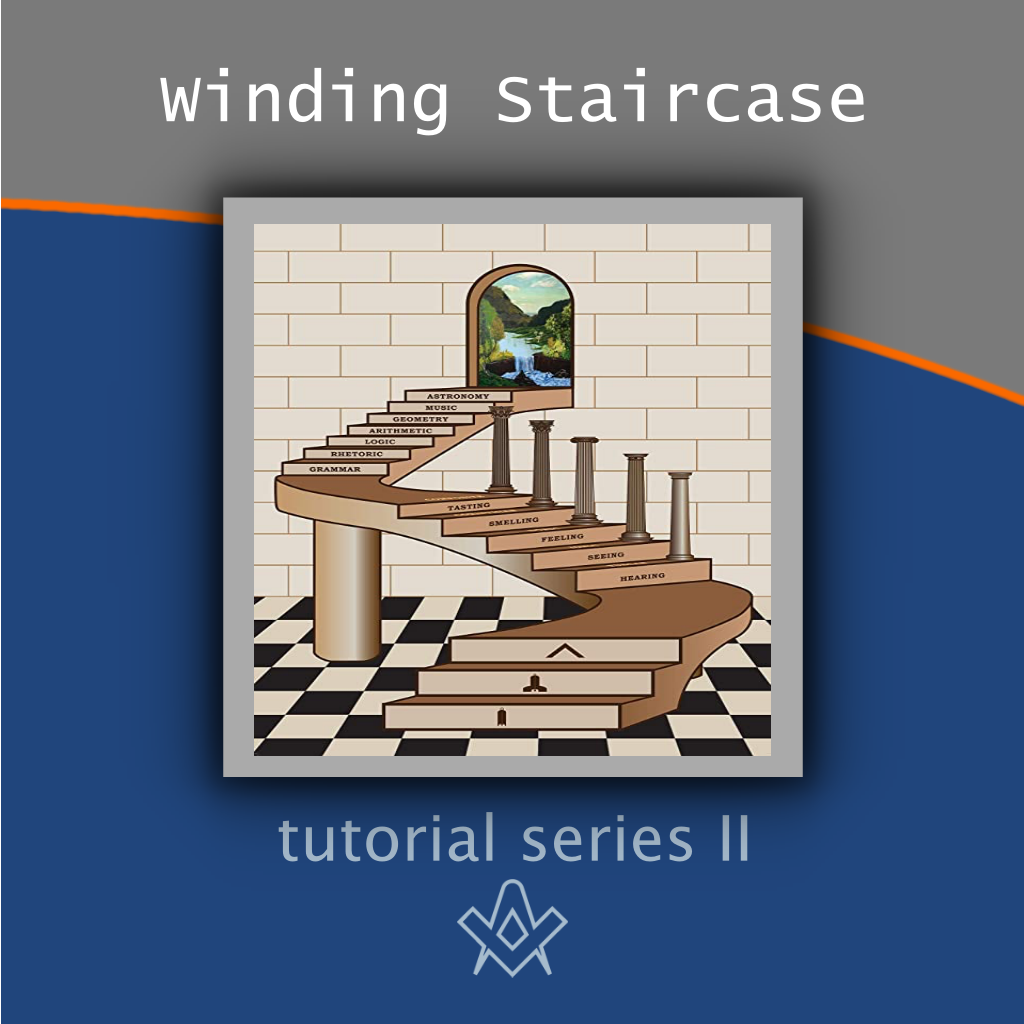I was reading an article by Don Harvey called, ‘Tips and Tricks on becoming a Master of your Craft’, and this gem shone out:
Practice + Effort = Skill.
Skill + Effort = Achievement.
In our journey to being the best person we can be, using Freemasonry as our guide to that end, I saw this simple phrase as:
Practice + Effort = Fellowcraft.
Fellowcraft + Effort = Master.
The Winding Staircase. – Steps to the Making of a Master.
Video Presentation
The common denominator is ‘effort’ – ‘the physical and/or mental capacity to achieve something’. (Cambridge Dictionary).
To achieve there must be a willingness and a desire to reach a goal. Without that willingness and desire to learn and be adaptable to change you can never become a ‘Master of your Craft’.
I put this question to you: in Freemasonry does ‘Master’ mean; ‘Mastered the Masonic ritual’, or does it mean, ‘Mastered a significant way of life’?
This is something I struggle with whenever it comes around to selecting the Master of a Lodge. Does mastering the ritual have more sway over mastering a significant way of life? Or vice versa.
The ‘ideal’ candidate, of course, would have both qualities.
In the first degree we find the ‘moral man’, in the second degree we find the ‘intellectual man’. A man who is continually developing his knowledge. At the time of the Guilds, in the middle ages, at the genesis of Freemasonry, higher education was in the form of the Trivium and the Quadrivium. The seven liberal arts and sciences.
The Trivium – grammar, rhetoric and logic.
The Quadrivium – arithmetic, geometry, music and astronomy.
These studies were intended to provide a general knowledge and develop general intellectual capacities as opposed to professional or vocational skills.
The Trivium gave the learner the tools to understand language and reasoned argument whilst the Quadrium the means of calculation, both essential qualities of the educated man of the time.
Even today when going for a job or entering into higher education, qualifications in English and Maths in the UK at a general level are an essential requirement.
The symbolism of each step of the winding staircase is to continue your personal development throughout your life, right up to your last breath in this world.
Each day brings new challenges and each day we learn more about ourselves and the world around us. By using all of our senses we become at one with the universe.
As we pass up the staircase we pass each of the five noble orders of architecture from the plain column of the Tuscan through to the most decorated column of the Composite, showing the developing skill sets of your education in each step. They align with the five senses for when learning it is essential that all our senses are used.
A simple experiment is to close your eyes and just listen to what is around you. Now open your eyes and see what the noises heard relate to.
What extra information are you acquiring?
Now take hold of an object, how does it feel; rough, smooth, sharp, cool, warm?
What does it look like, colours, shapes?
Does it make a noise?
Does it smell?
What does it taste like?
We have applied our five senses and each sense brings more information, and so with the five noble orders of architecture. Each order requires a little more skill to complete.
So as we require more information through our senses our skill level advances to produce a column of exquisite design.
The steps are winding which symbolises the courage it takes to make each step into the unknown, for we are unable to see where the steps are leading us.
But with the strength given to us at our foundation, the courage of the moral man, and the hope that that brings we take each step with confidence and trust in our guide.
The first three steps indicate our moral development. Square conduct, level steps and upright intentions.
The second five steps our physical and skill based development and the third seven or more steps our intellectual development.
Self-development is a continual life process for as we learn we realise that, ‘the more we know the more we know we don’t know’, which in itself brings a desire to learn more. A daily advancement in Masonic knowledge.
Our goal is to reach the top of the staircase and receive the reward of our labours.
Make learning a habit for ‘Masters are made, not born!’ (Don Harvey) Enjoy every moment of every day for the purpose of life is happiness.
Footnote
References
Bibliography.
‘Tips and tricks on becoming the master of your craft’. Don Harvey.
Cambridge Dictionary.
Masonic Ritual. Lodge of Union No. 38
Article by: Stephen J. Goulding
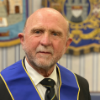
Stephen was initiated into Freemasonry in 1978 in Tylney Lodge No. 5856 (UGLE). He was Master in 1989 & 2004.
He was Master of the Lodge of Union 38 (UGLE) in 2018. He is also a PZ in the Holy Royal Arch and PM in the Mark Degree.
Stephen served 30 years in the Metropolitan Police Service (London, England) before going into education in 2000, where he became a college lecturer and a mentor for both the college and the University of Greenwich (London, England). Now retired, he teaches Tai Chi and Qigong in the community.
Facebook: Steve Goulding-Tai Chi West Sussex–Chi at Chi
Recent Articles: in this tutorial series
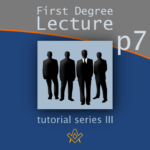 William Preston (1742 – 1818) gives his lectures in the form of a Catechism – questions and answers - and broken down into seven bite size chunks. This article is the first of the seven part series presented by Steve Goulding |
 William Preston (1742 – 1818) gives his lectures in the form of a Catechism – questions and answers - and broken down into seven bite size chunks. This article is the first of the seven part series presented by Steve Goulding |
 William Preston (1742 – 1818) gives his lectures in the form of a Catechism – questions and answers - and broken down into seven bite size chunks. This article is the first of the seven part series presented by Steve Goulding |
 William Preston (1742 – 1818) gives his lectures in the form of a Catechism – questions and answers - and broken down into seven bite size chunks. This article is the first of the seven part series presented by Steve Goulding |
 William Preston (1742 – 1818) gives his lectures in the form of a Catechism – questions and answers - and broken down into seven bite size chunks. This article is the first of the seven part series presented by Steve Goulding |
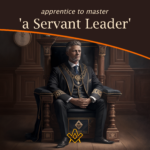 Apprentice to Master, “a Servant Leader”. Freemasonry is a learning platform used to improve a lifestyle which is morally, educationally and spiritually sound. To guide a person through life in order to be the best they can be. A Master, or ‘Servant Leader,’ develops those people in their care. They are someone who can guide others using the principles of Freemasonry - By Stephen J. Goulding |
 William Preston (1742 – 1818) gives his lectures in the form of a Catechism – questions and answers - and broken down into seven bite size chunks. This article is the second of the seven part series presented by Steve Goulding |
 William Preston (1742 – 1818) gives his lectures in the form of a Catechism – questions and answers - and broken down into seven bite size chunks. This article is the first of the seven part series presented by Steve Goulding |
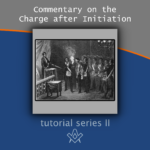 Commentary on the Third Degree Charge The Third Degree Charge invites the candidate to reflect on his life as both a ‘moral’ and ‘educated’ man, and to contemplate on what may be missing in his life. The ‘genuine secrets of a Master Mason’. |
 Commentary on the Second Degree Charge In the second degree we learn about being an educated man. Skilful, not only in the Craft itself but also how to communicate and manage others. This Commentary looks at the second degree charge in detail. |
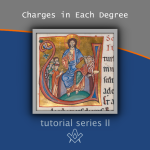 The ‘Old Charges’ have come down to us, containing the rules and regulations by which Lodges should be run and the moral and social standards to which each Lodge member should adhere. |
 Steps to the Making of a Master. The symbolism of each step of the winding staircase is to continue your personal development throughout your life, right up to your last breath in this world. |
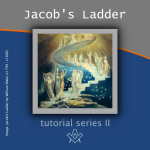 On the First Degree tracing board the most dominant feature is Jacob’s Ladder stretching from Earth to Heaven. Being straight, it is the shortest and quickest way to reach heaven, and being straight you can see the end goal. |
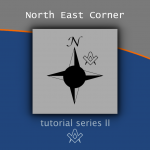 The North East Corner: A Lesson on Charity The ritual of the North East corner is a powerful piece of teaching. Let us examine that piece of ritual more closely; the lesson on charity. |
 When we look at the ritual book the deacons are told to ‘perambulate’ with the candidate. So what does this really mean? |
 The taking of a ‘Vow of Fidelity’. Oaths, Vows and Covenants |
 Morality veiled in allegory and illustrated by symbols A phrase that immediately comes to mind when describing Freemasonry – Morality veiled in allegory and illustrated by symbols. Let us have a look at what this phrase actually means. |
 Officers of the Royal Arch - The Principals The Principals' role in the Royal Arch, representing the pinnacle of spiritual leadership. Their esoteric significance lies in the unity of the three aspects of the divine, emphasizing the importance of harmony and balance in attaining spiritual enlightenment. The Principals embody the ultimate goal of the Royal Arch journey - the realization of divine wisdom. |
 Officers of the Royal Arch - Scribe Ezra Scribe Ezra is portrayed as a crucial figure within the Royal Arch, responsible for interpreting and teaching divine laws. The significance of his role lies in the pursuit of understanding and applying sacred knowledge, emphasizing the transformative power of wisdom when applied to one's life. |
 Officers of the Royal Arch - Scribe Nehemiah Scribe Nehemiah's responsibility within the Royal Arch, is that of preserving the sacred teachings. Scribe Nehemiah symbolizes the importance of maintaining accurate records and upholding the integrity of divine knowledge, thus reflecting the value of safeguarding spiritual wisdom for future generations. |
 Officers of the Royal Arch - The Sojourners The Sojourners, are seekers of truth, their journey symbolizes the spiritual path to enlightenment. Their role in rediscovering lost wisdom highlights the esoteric concept of regaining divine knowledge through perseverance and self-discovery. |
 Commentary on the Charge after Initiation A more detailed explanation in order for us to understand the Charge after Initiation |
 Officers of the Royal Arch - The Janitor The Janitor, is a crucial officer in the Royal Arch. Symbolically, the Janitor represents the guardian of sacred knowledge, ensuring only worthy individuals gain access. This function emphasizes the importance of maintaining spiritual purity and safeguarding the mysteries of the Royal Arch. |
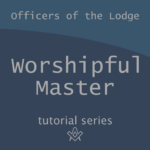 Officers of the Lodge - Worshipful Master Worshipful Master: the highest-ranking officer in the lodge, is the embodiment of wisdom and authority. The Worshipful Master guides the brethren on their spiritual path, representing the divine light that illuminates the Masonic quest for knowledge and self-discovery. |
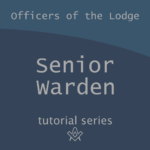 Officers of the Lodge - Senior Warden Senior Warden: embodies the essence of strength and stability within the lodge. As the pillar of support for the Worshipful Master, the Senior Warden symbolizes the fortitude required on our spiritual journey, inspiring us to persevere in the face of adversity |
 Officers of the Lodge - Junior Warden Junior Warden: Ensuring the well-being of the brethren during the lodge's hours of refreshment. Representing the virtue of temperance, the Junior Warden reminds us to find balance in our lives and cultivate moral discipline in our pursuit of truth. |
 Officers of the Lodge - Deacons Deacons: The messengers and intermediaries within the lodge. Representing the communication between the material and the spiritual realms, Deacons symbolize the importance of transmitting knowledge and wisdom as we strive for personal growth and enlightenment on our Masonic journey. |
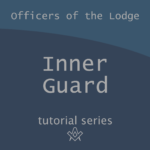 Officers of the Lodge - Inner Guard Inner Guard: Is the first line of defence against unworthy intruders, the Inner Guard represents our inner conscience and the personal responsibility we have to safeguard the integrity of our spiritual journey. |
 Tyler: The significance as the protector of the lodge's secrets and harmony. Tasked with guarding the entrance, the Tyler symbolizes our spiritual and moral boundaries, ensuring only worthy candidates are allowed into the sacred space of Freemasonry's teachings and rituals. |
masonic knowledge
to be a better citizen of the world
share the square with two brothers

click image to open email app on mobile device



